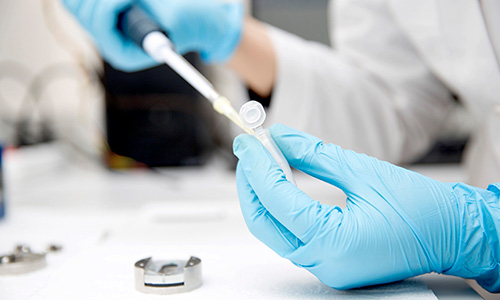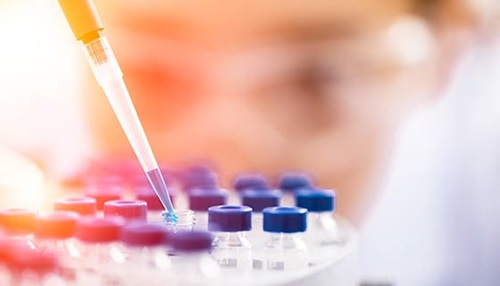How Long Does It Take To Get Better From Covid
Coronavirus Diagnosis: What Should I Expect?
Reviewed By:
As doctors and care providers work to reduce the spread of COVID-19 and the coronavirus that causes it, people want to know what happens if they are diagnosed with COVID-19. Lisa Maragakis, M.D., M.P.H., senior director of infection prevention, explains what to expect.
How will I feel if I have COVID-19?
The coronavirus affects people differently. Some people have no symptoms at all and may not even know they are ill, even though they can transmit the coronavirus to others.
If you have any of the following symptoms, call your doctor. He or she will say whether you need a test and recommend what you should do.
- Cough
- Fever or chills
- Shortness of breath or difficulty breathing
- Muscle or body aches
- Sore throat
- New loss of taste or smell
- Diarrhea
- Headache
- New fatigue
- Nausea or vomiting
- Congestion or runny nose
In some people, COVID-19 can start out mild and become serious quickly. If you experience shortness of breath or difficulty breathing, call 911 immediately or go to an emergency department.
Most people with a mild case of COVID-19 can rest at home and self-isolate.
How do people get infected with the coronavirus that causes COVID-19?
If you test positive for COVID-19, you probably inhaled droplets or virus particles transmitted from an infected person, released into the air when that person breathed, spoke, coughed, sneezed or sang, especially if he or she was not wearing a face mask.
In rarer cases, people become infected after touching something with the coronavirus on it, and then touching their face. If a member of a household has COVID-19, there is a high risk that it will be transmitted to others in the home.
If I have COVID-19, when will I feel better?
Those with a mild case of COVID-19 usually recover within one to two weeks. For severe cases, recovery can take six weeks or more, and there may be lasting damage to the heart, kidneys, lungs and brain.
About 1% of infected people worldwide will die from the disease.
Is there medicine I can take to feel better if I have COVID-19?
For most people, rest and drinking plenty of fluids are the best treatments. Your doctor may also suggest you take over-the-counter medication for fever.
More severe cases require hospitalization. Hospital care may include breathing support, such as a ventilator, or other treatments.

Coronavirus Self-Checker and COVID-19 Vaccine FAQ
Check symptoms. Get vaccine information. Protect yourself and others.
If I have COVID-19, how can I keep my family safe?
You should stay in one room away from other people in your home as much as possible. Also, use a separate bathroom if one is available.
If you have to be in the same room as other people, you should wear a face mask. If you cannot wear a face mask (for some, face masks may cause trouble breathing), people who live with you should not be in the same room as you. If they do enter your room, they should wear a face mask.
You — or someone else — should keep your house clean and sanitized by following these steps:
- Do not share personal household items such as dishes, drinking glasses, cups, utensils, towels or bedding with other people, or with pets. After using these items, wash them thoroughly.
- Every day, clean all "high-touch" surfaces. These include counters, tabletops, doorknobs, bathroom fixtures, toilets, phones, keyboards, tablets and bedside tables.
- Clean any surfaces that may have blood, stool or other body fluids on them.
- You can use a household cleaning and disinfectant spray or wipe. Be sure to follow the label instructions on the cleaning product for safe and effective use.
You should also practice good hygiene, including washing your hands frequently for at least 20 seconds and coughing or sneezing into your elbow or a tissue (and then throwing the tissue away).
How can I care for my pets if I have COVID-19?
While researchers are still studying the risk of spreading the coronavirus between humans and pets, it's best to follow the same safety measures with your pet as you would with people.
- Avoid contact with your pet, including petting, snuggling, being kissed or licked, and sharing food.
- When possible, have another member of your household care for your animals.
- If you must care for them, wear a face mask and wash your hands before and after.
After COVID-19, when is it safe for me to go out in public?
Talk to your doctor. In general, you can resume contact with other people after:
- You have had one day without fever (without any fever-reducing medications during that time), AND
- It has been at least 10 days since you first experienced symptoms, AND
- Your symptoms are improving.
If you have a severe case of COVID-19, a suppressed immune system or other special circumstances, your doctor may recommend a longer period of isolation or further testing. If you test negative for the coronavirus twice in a row, with tests at least 24 hours apart, you can resume contact with others.

Coronavirus (COVID-19) Email Alerts
Sign up to receive coronavirus (COVID-19) email updates from Johns Hopkins Medicine.
Does a coronavirus diagnosis mean I'll get pneumonia?
Some patients with COVID-19 develop pneumonia. Viral pneumonia, such as from COVID-19, cannot be treated with antibiotics. In severe cases, ventilator support may be needed to ensure the body is getting enough oxygen.
People over age 65 and those with certain health conditions are at a higher risk of developing pneumonia and may experience more severe cases of COVID-19. Studies show that in patients with COVID-19, pneumonia may progress into acute respiratory distress syndrome (ARDS), which can be fatal in some patients.
Can I get COVID-19 more than once?
Researchers are eager to learn more about a person's immunity after having COVID-19. For some viruses, a person can have lasting immunity; for others, the immunity lasts only a limited time. More research will reveal how the body responds to SARS-CoV-2, the coronavirus causing the COVID-19 pandemic.

Coronavirus (COVID-19)
What you need to know from Johns Hopkins Medicine.
Updated October 22, 2020.
How Long Does It Take To Get Better From Covid
Source: https://www.hopkinsmedicine.org/health/conditions-and-diseases/coronavirus/diagnosed-with-covid-19-what-to-expect
Posted by: campbellyeard1966.blogspot.com

0 Response to "How Long Does It Take To Get Better From Covid"
Post a Comment